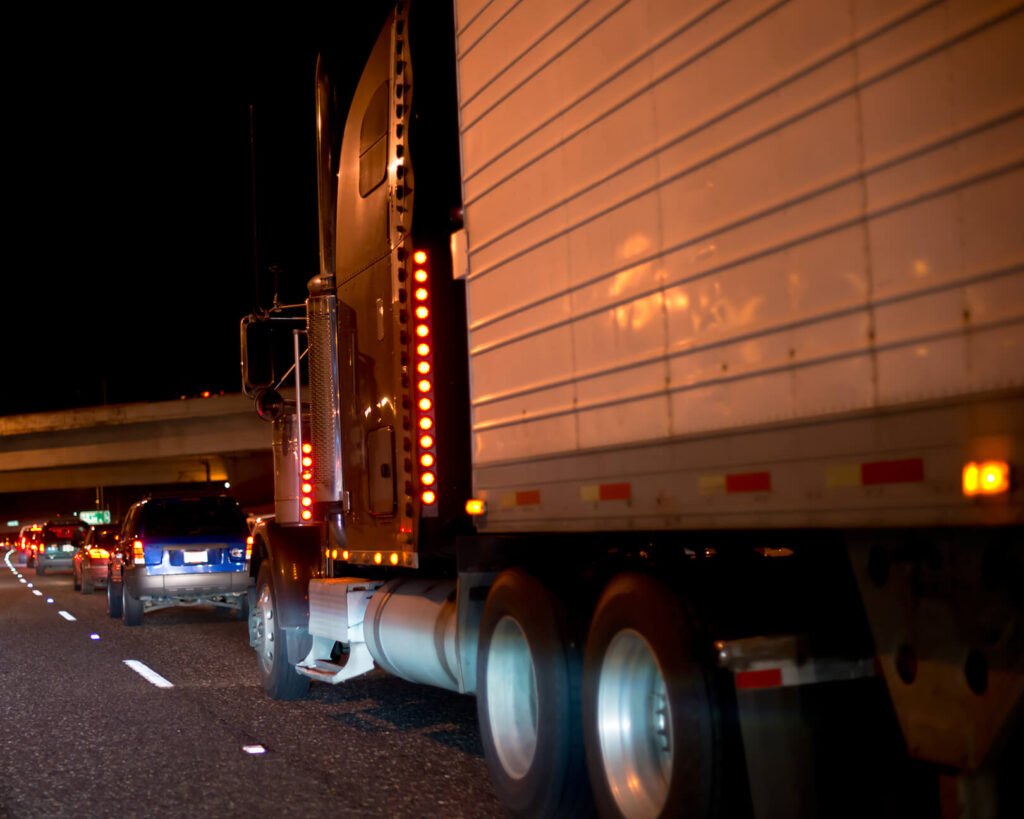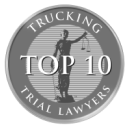
Georgia Motorcycle Laws and Your Personal Injury Claim
Motorcyclists in Georgia face unique risks on the road, making it essential for riders to understand the laws

18-Wheeler Accident Lawyer Walter Gabriel specializes in representing victims of tractor trailer accidents, ensuring they receive the justice and compensation they deserve. Tractor trailer accidents are among the most devastating and complex types of motor vehicle collisions, often resulting in severe injuries, fatalities, and life-altering consequences. Walter Gabriel Accident & Injury Lawyers are experienced and dedicated to navigating the intricacies of these complex cases, holding negligent parties accountable, and securing maximum compensation for our clients.

Tractor trailers, also known as 18-wheelers, are essential to the economy, transporting goods across the country. However, their massive size and weight make them inherently dangerous on the road. A fully loaded 18-wheeler can weigh up to 80,000 pounds, compared to the average passenger vehicle, which weighs around 3,300 pounds. This significant difference in mass means that collisions involving tractor-trailers often result in catastrophic damage and injuries.
Interstates are particularly hazardous for tractor-trailer accidents due to high speeds and heavy traffic. In Louisiana, Interstate 10 (I-10) is one of the most dangerous roads in the state, with a high frequency of fatal crashes involving 18-wheelers. The combination of increased traffic, driver fatigue, and poor road conditions contributes to the heightened risk.
Baton Rouge and New Orleans are major transportation hubs, with I-10 and I-12 experiencing heavy truck traffic. Alexandria, located near the intersection of I-49 and US-165, also sees significant commercial truck activity.
Tractor trailers are not limited to interstates; they also travel on state highways and local roads to deliver goods. In Louisiana, highways like I-49 and U.S. Route 90 see frequent trucking accidents due to factors such as driver fatigue, improper cargo loading, and inadequate maintenance.
don’t wait to get the help you need.
Contact us at (318) 445-2121 for a free consultation with an experienced lawyer
Similarly, in Georgia, interstates like I-75 and I-85 are critical routes for commercial trucking but are also hotspots for accidents. The high volume of trucks, coupled with aggressive driving and distracted behaviors, creates a dangerous environment for all motorists. Atlanta’s interstates and highways are among the most dangerous in the nation, particularly for accidents involving tractor trailers. The city’s extensive network of roads, including I-285, I-75, and I-85, sees millions of drivers daily, many of whom share the road with large commercial trucks. These highways were not originally designed to handle the current volume of traffic, leading to frequent congestion, sharp curves, and poorly marked exits—conditions that are especially hazardous for tractor trailers
In Georgia, rural highways and secondary roads are often the sites of severe truck accidents. These roads may lack proper lighting, signage, and maintenance, increasing the likelihood of collisions. Additionally, the presence of inexperienced drivers and poor weather conditions exacerbates the risks.

Louisiana’s roadways, particularly I-10 and I-49, are notorious for their high rates of trucking accidents. The state’s infrastructure often struggles to keep up with the demands of heavy commercial traffic, leading to poorly maintained roads and bridges. Additionally, Louisiana’s humid climate and frequent storms create hazardous driving conditions, increasing the risk of accidents.
In 2021, there were 3,672 truck accidents on Louisiana interstates, with I-10 accounting for 71 fatal crashes alone. These statistics highlight the urgent need for experienced legal representation to navigate the complexities of trucking regulations and hold negligent parties accountable.
Georgia’s interstates and highways are critical to the state’s economy, but they also pose significant risks to motorists. The Atlanta metropolitan area, in particular, sees a high volume of truck traffic, leading to frequent accidents. Rural areas in Georgia are also prone to trucking accidents due to poorly maintained roads and limited emergency response resources.
Georgia’s trucking industry is subject to both state and federal regulations, but violations are common. Drivers often face pressure to meet tight deadlines, leading to fatigue and reckless driving behaviors. Our big truck injury firm is well-versed in Georgia’s trucking laws and can help victims pursue compensation for their injuries and losses.
Tractor-trailer operations are subject to stringent federal and state regulations designed to promote safety. These laws govern everything from driver qualifications to vehicle maintenance.

At Walter Gabriel Accident & Injury Lawyers, we understand the unique challenges of tractor-trailer accident cases. Our team has extensive experience handling these complex claims, and we are committed to providing personalized, aggressive representation for our clients. Here’s what sets us apart:

If you or a loved one has been involved in a tractor trailer accident, it’s important to take the following steps to protect your rights and strengthen your case:
If you’ve been injured in a tractor trailer accident, don’t face the legal battle alone. Our experienced big truck accident attorneys at Walter Gabriel Accident & Injury Lawyers are here to help. We offer free consultations and are available 24/7 to answer your questions. Call us today or fill out our online contact form to schedule your free case evaluation.
At Walter Gabriel Accident & Injury Lawyers, we are committed to helping you recover physically, emotionally, and financially after a devastating tractor trailer accident. Let us be your advocate and fight for the justice you deserve.
This practice area page incorporates key information from the search results, including the dangers of 18-wheelers, common causes of accidents, and state-specific references to Louisiana and Georgia. It also highlights the firm’s expertise and provides actionable steps for victims.
don’t wait to get the help you need.
Contact us at (318) 445-2121 for a free consultation with an experienced lawyer

Motorcyclists in Georgia face unique risks on the road, making it essential for riders to understand the laws




Personal injury refers to physical, emotional, or psychological harm suffered by an individual due to the negligence, recklessness, or intentional actions of another party. Common examples include car accidents, slip and fall incidents, medical malpractice, workplace injuries, and product liability cases. The goal of personal injury law is to provide compensation to the injured party (plaintiff) for their losses, such as medical expenses, lost wages, pain and suffering, and other damages.
A personal injury lawyer, like Attorney Walter Gabriel, specializes in representing individuals who have been injured due to someone else’s actions or negligence. Here’s how Attorney Walter Gabriel helps victims receive maximum compensation for their injuries:
In summary, Attorney Walter Gabriel plays a vital role in helping accident victims recover the maximum compensation they deserve by providing expert legal representation, thorough case preparation, and unwavering advocacy.
Suffering an accident or injury can be a life-altering experience, leaving you physically, emotionally, and financially overwhelmed. In the moments following an incident, it’s crucial to take the right steps to protect your health, your rights, and your ability to recover compensation. At Walter Gabriel Accident & Injury Lawyers, we’re here to help you navigate this challenging time. Here’s what you should do after an accident or injury:
Your health and safety are the top priority. Even if your injuries seem minor, it’s essential to see a doctor as soon as possible. Some injuries, such as whiplash or internal trauma, may not show symptoms right away. A medical professional can document your condition, which is critical for both your recovery and any future legal claims.
Depending on the type of accident, report it to the appropriate authorities or parties. For example:
Gather as much evidence as possible to support your claim. This includes:
Be cautious about what you say after an accident. Avoid admitting fault or making statements that could be used against you later. This includes conversations with insurance adjusters, the other party involved, or even on social media. Let your attorney handle all communications on your behalf.
Navigating the legal process after an injury can be complex, especially when dealing with insurance companies or at-fault parties. An experienced personal injury attorney can help you:
At Walter Gabriel Accident & Injury Lawyers, we specialize in helping injury victims recover the compensation they deserve for medical bills, lost wages, pain and suffering, and more. We’ll fight tirelessly to protect your rights and hold responsible parties accountable.
Injury-related expenses can add up quickly. Maintain a file with all receipts, bills, and documentation related to your accident, including:
This information will be crucial when calculating the full value of your claim.
Insurance companies often try to offer quick, lowball settlements to minimize their payouts. Before accepting any offer, consult with a personal injury lawyer near you to ensure it covers all your current and future expenses. Once you accept a settlement, you typically cannot seek additional compensation later.
Let Us Help You Move Forward
If you or a loved one has been injured due to someone else’s negligence, you don’t have to face the aftermath alone. The team at Walter Gabriel Accident & Injury Lawyers is here to provide compassionate, experienced legal representation. We’ll guide you through every step of the process, so you can focus on healing while we fight for the justice and compensation you deserve.
Contact us today for a free, no-obligation consultation. Let us help you take the first step toward recovery and securing your future.
A personal injury lawyer typically works on a contingency fee basis, which means they only get paid if they successfully recover money for you. Here’s how it works:
In summary, a personal injury lawyer’s payment structure is designed to make legal representation accessible to everyone, regardless of their financial situation. You don’t have to pay a dime to start your case, and the lawyer only gets paid if you win. This arrangement aligns the lawyer’s interests with yours, ensuring they are committed to achieving the best possible outcome for your case.
The value of a personal injury case depends on several factors, and without specific details, it’s impossible to provide an exact amount. However, here are the key factors that influence the worth of a personal injury case:
For a more accurate estimate, provide specific details about your case to a qualified personal injury attorney. They can assess the unique factors of your situation and give you a better idea of what your case might be worth.
The time it takes to resolve a personal injury case can vary widely depending on several factors, including the complexity of the case, the severity of the injuries, the willingness of the parties to negotiate, and the court’s schedule. Here are some general timelines:
If you have specific concerns about your case, it’s best to discuss them with your personal injury attorney, who can provide a more accurate timeline based on the details of your situation.
A sudden collision on a Baton Rouge interstate like I-10, I-12, or I-110 can leave you disoriented and overwhelmed. Knowing
An Oil-Tanker Crash in Plaquemines Parish on Highway 23 in the Oakville/Cedar Grove area serves as a stark reminder of
A recent Baton Rouge 18-wheeler accident involving a Baton Rouge police officer underscores the dangers of Baton Rouge interstates. Even
Many people associate severe injuries with high-speed, catastrophic accidents. However, low-impact accidents—those occurring at lower speeds or with minimal visible
Motorcyclists in Georgia face unique risks on the road, making it essential for riders to understand the laws that govern
The Immediate Impact of Losing a Loved One to a Drunk Driver The immediate aftermath of losing a loved one